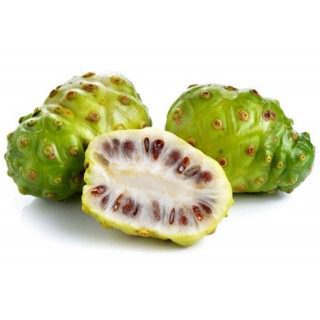

Noni fruit is a beneficial addition to a dog’s diet due to its anti-inflammatory, antibacterial, and antifungal properties. It has been found to aid in the elimination of intestinal parasites. However, dogs with liver problems should avoid noni as it can worsen their condition.
Noni is packed with nutrients, phytochemicals, and antioxidants that promote healthy joints, boost the immune system, and protect against diseases. Its anti-inflammatory, antibacterial, and antifungal properties make it effective in eliminating heartworm, hookworms, roundworms, and other parasites.
Noni seeds pose a choking hazard, as each fruit contains hundreds of them. Noni juice can cause diarrhea in dogs with sensitive digestive systems, and dogs with liver problems should avoid noni as it can cause liver issues. Mixing noni with other fruits or additives may create toxic compounds that are harmful to dogs.
Ripe noni fruit can be served fresh in moderation, with the seeds removed. If adding noni juice to a dog’s diet, consult a vet for the appropriate amount.
Noni fruit, also known as Indian mulberry or beach mulberry, is a tropical fruit that is native to Southeast Asia and Australasia. It is commonly used in traditional medicine and has recently gained popularity as a superfood for its numerous health benefits. Noni fruit can be a great addition to your dog's diet, as it is packed with nutrients, antioxidants, and compounds that promote healthy joints, boost immunity, and eliminate parasites. Despite its benefits, noni seeds can pose a choking hazard, and dogs with liver issues should avoid it.
While noni is beneficial for dogs, there are some risks that must be kept in mind. Noni seeds are small and can choke dogs easily. Noni juice can cause diarrhea, so it must be given in moderation to dogs with sensitive digestive systems. Dogs with liver problems must avoid noni since it can worsen their condition. Mixing noni with other fruits or additives can produce toxic compounds that can cause harm to dogs.
Ripe noni fruit can be served fresh in moderation, with the seeds removed. Noni juice must be given in consultation with a vet, who can determine the appropriate amount for your dog's needs. If noni isn't accessible or affordable, papaya and cranberries are good alternatives that have similar benefits.
Have you tried feeding noni fruit to your pet? What was their experience like? Let's discuss in the comments below. As always, remember to feed your dog a well-balanced diet, and consult with a vet before adding any new food items to their diet.